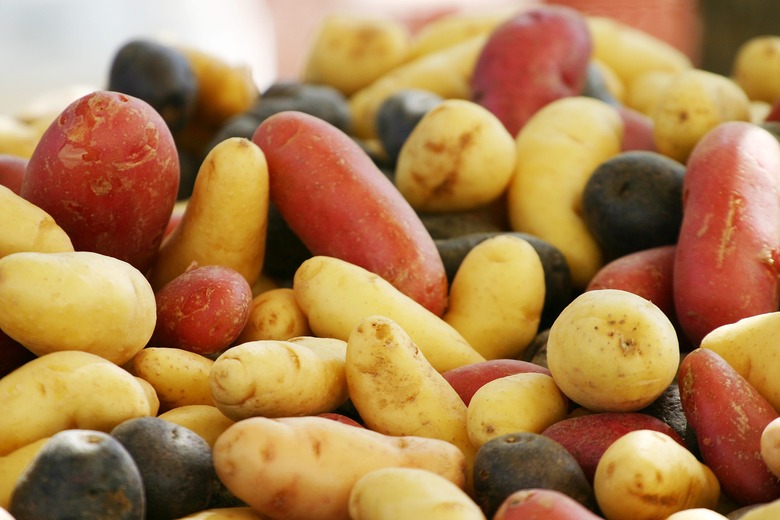10 Weirdest Irish Slang Food And Drink Terms
Today is St. Patrick's Day, so what better time to learn some Irish slang terms? However, none of these terms really have anything to do St. Paddy's (except for the drinking terms, I suppose), so feel free to use them any time that's fitting.
Unlike a lot of other slang, most of these terms actually make a bit of sense. You might not be able to guess them all, but after finding out the meaning, it will at least be logical — for the most part; a couple of them are quite odd. As a fun experiment, first try to guess what the word means before looking at the description underneath.
Please note: Not all of these terms are necessarily Irish in origin. A lot of the actual origins are uncertain, because as previously stated, they're not exactly complicated or imaginative, and thus they probably weren't especially difficult to come up with. Regardless, they are all terms that are used in Ireland. Before heading out to the pub tonight, why not add a few new words to your vocabulary?
Afters
"Afters" refers to the most important meal of the day. No, not breakfast — dessert! And since dessert usually comes after all the other meals, the term totally makes sense. Especially for me, because I basically have dessert after every meal.
Gargle
Gargle is a slang term for beer or alcohol. You can "have a gargle" if you're having a drink or be "on the gargle" if you're drinking. And no, there's no evidence that the term came about because the Irish drink so much beer that they even gargle with it — although that would be quite impressive.
Messages
The trickiest Irish slang terms are the ones that have a completely different meaning to most people. If someone says they need to "go get messages," it has nothing to do with letters, texts, emails, or voicemails — "messages" is instead another term for groceries.
Pan
Pan means bread. It's often cooked in a pan, therefore it's pan. Want to know what they call sliced bread? "Sliced pan." Fascinating.
Pandy
If you ask for "pandy" in Ireland, you'll get a plate of mashed potatoes, which will likely be yellow in color, since pandy is often mixed with butter and milk. The expression allegedly originated in Ireland's County Cork. "Poundies" might also be used to refer to potatoes with scallions.
Poke
"Poke" is an Irish slang term for ice cream. Specifically, it refers to ice cream served in a cone, but it can be used for the frozen treat regardless of the vessel in which it is served. Word of warning: Poke can also be used as slang for sexual intercourse, so be careful how you use it. Or perhaps it's best to not use this one at all...
Poppy
Speaking of potatoes, although "spuds" is a common term in both Ireland and elsewhere, "poppy" is not. At least not in the same way. Poppies are potatoes, and considering the abundance and popularity of the crop in Ireland, it's no wonder they have a slang term for it. Some Irish folks also use the term "tatties" for potatoes, but that's apparently Scottish in origin. One might also hear potatoes referred to as "praties," "purdies," or "pirries" in Ireland.
Scald
Scald is slang for tea. Now that you know this, the origin can probably be deciphered quite easily. Tea is hot, hot things can scald you, therefore tea is scald. Interestingly, the term "mug" often replaces the term "cup," especially in this case. Care for a mug'o scald?
Scuttered, Ossified, Mouldy, Buckled
Take your pick, as they all mean the same thing: to be drunk. (See also: blutered, locked, legless, flutered, baloobas, jarred, rotten, and also pretty much every term we use in America.)
Scoops
For one last drinking term, here's a word that simply means "drinks" — specifically alcoholic ones: "scoops." So if someone asks you if you'd like to go out for a few scoops, they don't mean ice cream. If they did, they'd instead ask if you'd like to go out for a poke. Then again, as previously explained, that could be misleading as well.
